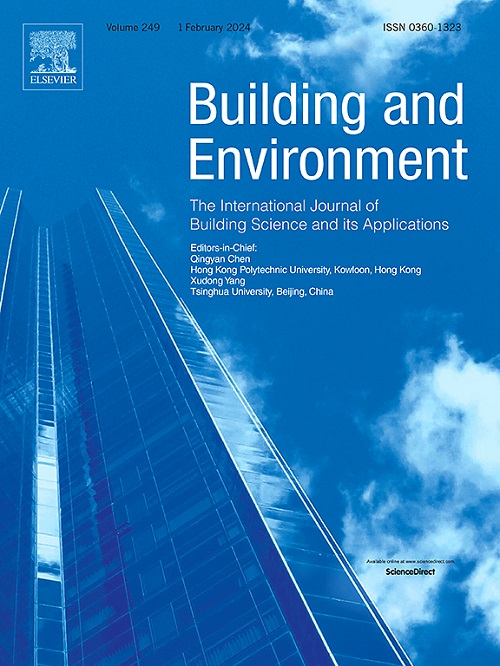优化游泳中心的光环境,提高奥运冠军和其他精英游泳运动员的成绩:实验研究
IF 7.1
1区 工程技术
Q1 CONSTRUCTION & BUILDING TECHNOLOGY
引用次数: 0
摘要
未来五年内将有几项大型国际体育赛事需要新建体育场馆,其中照明环境是一个关键因素。通常,体育场馆的照明系统主要用于照明。然而,由于光对人的心理和生理有影响,我们对体育建筑中的光环境是否会影响运动成绩进行了调查。此外,游泳是奥运会上获得金牌最多的室内运动项目。因此,我们在游泳中心对 14 名精英游泳运动员(包括奥运冠军和亚洲冠军,女 6 人,男 8 人;年龄 19.3 ± 3.4 岁)进行了受试者内随机交叉研究。在实验过程中,精英游泳运动员被置于游泳中心的普通相关色温(CCT)光环境(控制条件:5780 K)或实验光环境(8512 K)中,两者的照度相同(1020 lx)。神经行为和游泳测试结果表明,与对照条件相比,实验条件下奥运冠军和其他精英游泳运动员的反应明显更快、失误更少、唤醒程度更高、视觉疲劳更轻、起始反应更快、游泳速度更高(p <0.05)。我们的研究结果表明,游泳中心的光环境会影响游泳者的非视觉表现,提高光环境的 CCT 可以提高游泳者的表现。我们提出了 "超越照明的体育照明 "和 "以人为本的体育照明 "的概念,以提高运动员的健康水平和成绩,并改善体育环境,为所有参与者带来更好的体验。本文章由计算机程序翻译,如有差异,请以英文原文为准。
Optimizing light environments in aquatics center to enhance the performance of Olympic champions and other elite swimmers: An experimental study
Several major international sports events in the next five years require new sports venues, with lighting environments being a crucial factor. Typically, the lighting systems in sports venues are primarily for illumination. However, since light has been indicated to affect human psychology and physiology, we investigated whether the light environments in sports buildings impact athletic performance. Additionally, swimming is the indoor sport with the most gold medals in the Olympics. Therefore, we conducted a within-subject, randomized crossover study in an aquatics center with fourteen elite swimmers, including the Olympic champions and Asian champions (6 female and 8 male; 19.3 ± 3.4 years of age). During the experiment, the elite swimmers were exposed to either a common correlated color temperature (CCT) light environment (controlled condition: 5780 K) or an experimental light environment (8512 K) in the aquatics center, with both having the same illuminance (1020 lx). The neurobehavioral and swimming test results showed that the Olympic champions and other elite swimmers had significantly faster responses, fewer lapses, greater arousal, less visual fatigue, quicker reactions at start, and higher swimming speeds in the experimental condition compared to the controlled condition (p < 0.05). Our findings suggest that the light environment in the aquatics center affects swimmers' non-visual performance and enhancing the CCT of the light environment could improve swimmers' performance. We propose the concepts of Sports Lighting Beyond Illumination and Sports Human-Centric Lighting to enhance athletes’ health and performance, and to improve the sports environment for a better experience for all participants.
求助全文
通过发布文献求助,成功后即可免费获取论文全文。
去求助
来源期刊

Building and Environment
工程技术-工程:环境
CiteScore
12.50
自引率
23.00%
发文量
1130
审稿时长
27 days
期刊介绍:
Building and Environment, an international journal, is dedicated to publishing original research papers, comprehensive review articles, editorials, and short communications in the fields of building science, urban physics, and human interaction with the indoor and outdoor built environment. The journal emphasizes innovative technologies and knowledge verified through measurement and analysis. It covers environmental performance across various spatial scales, from cities and communities to buildings and systems, fostering collaborative, multi-disciplinary research with broader significance.
 求助内容:
求助内容: 应助结果提醒方式:
应助结果提醒方式:


